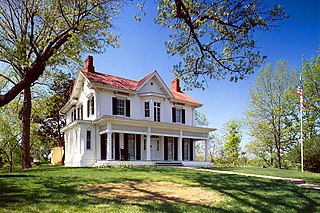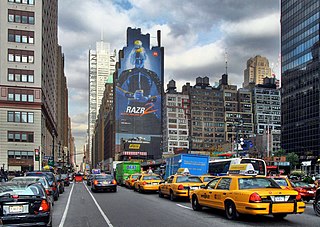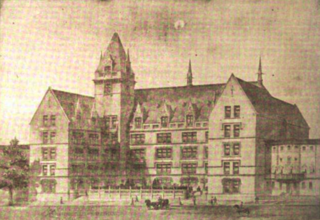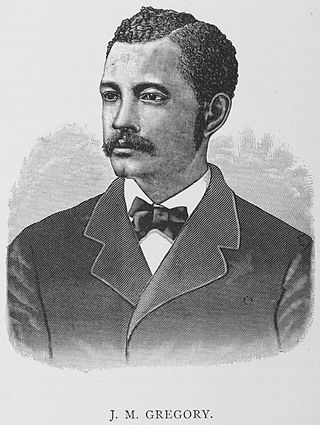Related Research Articles

Frederick Douglass was an American social reformer, abolitionist, orator, writer, and statesman. He became the most important leader of the movement for African-American civil rights in the 19th century.

Countee Cullen was an American poet, novelist, children's writer, and playwright, particularly well known during the Harlem Renaissance.

Music of the Heart is a 1999 American biographical musical drama film directed by Wes Craven and written by Pamela Gray, based on the 1995 documentary Small Wonders. The film is a dramatization of the true story of Roberta Guaspari, portrayed by Meryl Streep, who co-founded the Opus 118 Harlem School of Music and fought for music education funding in New York City public schools. The film also stars Aidan Quinn, Angela Bassett, Gloria Estefan in her film debut, Jane Leeves, Kieran Culkin and Jay O. Sanders. It was director Craven's first and only mainstream cinematic film not in the horror or thriller genre, and also his only film to receive Oscar nominations.

Raiford Chatman "Ossie" Davis was an American actor, director, writer, and activist. He was married to Ruby Dee, with whom he frequently performed, until his death. He received numerous accolades including a Grammy Award and a Writers Guild of America Award as well as nominations for five Emmy Awards, a Golden Globe Award, and Tony Award. Davis was inducted into the American Theater Hall of Fame in 1994 and received the National Medal of Arts in 1995, Kennedy Center Honors in 2004

VictorFrederick "Viki" Weisskopf was an Austrian-born American theoretical physicist. He did postdoctoral work with Werner Heisenberg, Erwin Schrödinger, Wolfgang Pauli, and Niels Bohr. During World War II he was Deputy Division Leader of the Theoretical Division of the Manhattan Project at Los Alamos, and he later campaigned against the proliferation of nuclear weapons.

The Frederick Douglass National Historic Site, administered by the National Park Service, is located at 1411 W Street, SE, in Anacostia, a neighborhood east of the Anacostia River in Southeast Washington, D.C. United States. Established in 1988 as a National Historic Site, the site preserves the home and estate of Frederick Douglass, one of the most prominent African Americans of the 19th century. Douglass lived in this house, which he named Cedar Hill, from 1877–1878 until his death in 1895. Perched on a hilltop, the site offers a sweeping view of the U.S. Capitol and the Washington, D.C., skyline.
In rhetoric, antimetabole is the repetition of words in successive clauses, but in transposed order; for example, "I know what I like, and I like what I know". It is related to, and sometimes considered a special case of, chiasmus.

Eighth Avenue is a major north–south avenue on the west side of Manhattan in New York City, carrying northbound traffic below 59th Street. It is one of the original avenues of the Commissioners' Plan of 1811 to run the length of Manhattan, though today the name changes twice: At 59th Street/Columbus Circle, it becomes Central Park West, where it forms the western boundary of Central Park, and north of 110th Street/Frederick Douglass Circle, it is known as Frederick Douglass Boulevard before merging onto Harlem River Drive north of 155th Street.

110th Street is a street in the New York City borough of Manhattan. It is commonly known as the boundary between Harlem and Central Park, along which it is known as Central Park North. In the west, between Central Park West/Frederick Douglass Boulevard and Riverside Drive, it is co-signed as Cathedral Parkway.

David William Blight is the Sterling Professor of History, of African American Studies, and of American Studies and Director of the Gilder Lehrman Center for the Study of Slavery, Resistance, and Abolition at Yale University. Previously, Blight was a professor of History at Amherst College, where he taught for 13 years. He has won several awards, including the Bancroft Prize and Frederick Douglass Prize for Race and Reunion: The Civil War in American Memory, and the Pulitzer Prize and Lincoln Prize for Frederick Douglass: Prophet of Freedom. In 2021, he was elected to the American Philosophical Society.
Frederick Douglass Academy, is a co-educational public school for grades 6-12 located in West Harlem, New York City. The school offers an SAT prep course program and a variety of Advanced Placement (AP) college courses that students can apply for starting in 10th grade. It is also one of the first high schools in Harlem to make wearing a uniform in a public school mandatory.
Gregory Howard Williams is a scholar, attorney, law school professor, author, and formerly the 27th President of the University of Cincinnati and the 11th President of the City College of New York (2001–2009).
Stephan Thernstrom is an American academic and historian who is the Winthrop Research Professor of History Emeritus at Harvard University. He is a specialist in ethnic and social history and was the editor of the Harvard Encyclopedia of American Ethnic Groups. He and his wife Abigail Thernstrom are prominent opponents of affirmative action in education and according to the New York Times, they "lead the conservative charge against racial preference in America."

Paul Tough is a Canadian-American writer and broadcaster. He is best known for authoring the works Whatever It Takes: Geoffrey Canada's Quest to Change Harlem and America and How Children Succeed: Grit, Curiosity, and the Hidden Power of Character.

Anacostia High School is a public high school in Anacostia, in the Southeast quadrant of the District of Columbia.

The Wadleigh High School for Girls was established by the NYC Board of Education in 1897 and moved into its new building in Harlem in September 1902. It was the first public high school for girls in New York City. At the time, public secondary education for girls was considered highly novel and perhaps a bit scandalous. Newspapers considered it newsworthy enough to devote many stories to describing classroom scenes of girls receiving “higher” education. The building is now shared among several schools including the Wadleigh Secondary School for the Performing and Visual Arts, the Frederick Douglass Academy II, and Success Academy Harlem West.
Eva Sarah Moskowitz is an American historian, politician, and education reform leader who is the founder and CEO of the Success Academy Charter Schools. A member of the Democratic Party, Moskowitz served on the New York City Council, representing the 4th district on the Upper East Side, from 1999 to 2005. Moskowitz interviewed to be Donald Trump's Secretary of Education, but decided not to pursue the position.

Success Academy Charter Schools, originally Harlem Success Academy, is a charter school operator in New York City. Eva Moskowitz, a former city council member for the Upper East Side, is its founder and CEO. It has 47 schools in the New York area and 17,000 students.

Nellie Rathbone Bright was an American educator, poet, and author. She taught in Philadelphia public schools, becoming a principal in 1935 and serving until her retirement in 1952. She inspired generations of African American students.

James Monroe Gregory was a Professor of Latin and Dean at Howard University. During the American Civil War, he worked in Cleveland for the education and aid of escaped slaves. He initially attended Oberlin College. He transferred to Howard and was the valedictorian of Howard's first graduating class in 1872. He then became a member of faculty, where he served until the late 1880s. During that time he was active in civil rights, particularly related to the education of African American children. He fought to desegregate Washington, D.C., schools in the early 1880s and participated in the Colored Conventions Movement and was a delegate to the 1892 Republican National Convention. In 1890, he founded the American Association of Educators of Colored Youth. In 1893, he published a biography of Frederick Douglass. In 1897, he was removed at Howard and moved to New Jersey where he became principal of Bordentown Industrial and Manual Training School.
References
- 1 2 3 4 5 Evans, Heidi (July 14, 2011). "School's out for Frederick Douglass principal Gregory Hodge: Tough-love head retiring after 31 years". New York Daily News .
- ↑ Fix, Sybil (November 26, 2000). "A beacon of hope". The Post and Courier. p. 20A.
- ↑ Holland, Robert (September 1, 2001). "How to build a better teacher". USA Today ., online at Highbeam
- ↑ Fix, Sybil (November 26, 2000). "Schools that beat the odds". The Post and Courier . p. 25A.
- ↑ Williams, Monte (January 2, 2001). "A Model for Learning In a Harlem School; Tough Standards and High Scores". The New York Times .
- ↑ Billups, Andrea (March 27, 2000). "Academy in Harlem enforces strict rules". The Washington Times .[ dead link ]
- ↑ Thernstrom, Abigail M.; Thernstrom, Stephan (2003). No Excuses: Closing the Racial Gap in Learning. New York: Simon & Schuster. p. 74. ISBN 9780743204460.
- ↑ Berg, Barbara J. (2009). Sexism in America: Alive, Well, and Ruining our Future . Chicago: Lawrence Hill. p. 178. ISBN 9781556527760.
Gregory Hodge, Douglass.
- ↑ "CSA News" (PDF). p. 9. Retrieved 24 October 2023.